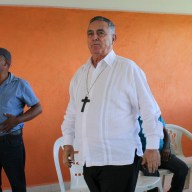Every so often Toronto’s scientific community reminds us that it’s among the best in the world.
This time around, it was a week in which the renowned Hospital for Sick Children broke ground on a $400-million research building and a pair of research teams published groundbreaking discoveries in one of the world’s top science journals.
The ongoing legacy of science excellence should not be a surprise. This is, of course, the city where James Till and Ernest McCulloch revealed the existence of stem cells, and where Frederick Banting and Charles Best helped discover insulin.
High school science students may also one day know the names of Brendan Frey and Benjamin Blencowe. The University of Toronto team has published a field-altering paper that provides an “Enigma machine” code breaker for all our genetic messages.
The paper, which graces the cover of the May 6 edition of the journal Nature, offers a means to predict the kinds of messages a gene will create in specific tissues, allowing researchers unprecedented insights into how our cells run our bodies.
In the same edition of Nature, scientists from the Ontario Cancer Institute published their findings on why the ovarian hormone progesterone is linked to an increased risk of developing breast cancer. The research opens a door for understanding how breast cancer can take root.
Science is also changing Toronto’s cityscape. On Tuesday, the Hospital for Sick Children broke ground on its 21-storey Research & Learning Tower, which will bring Sick Kids’ 2,000 scientists under one roof and help foster collaboration between different fields.
Later this year, Toronto Western Hospital will announce the launch of a mammoth neurological centre that will host research into ailments of the brain and central nervous system.
Peering back in time only one month finds another cluster of successes.
On April 6, a team of security experts, co-led by University of Toronto researchers, cracked a massive cyber-espionage network that had infiltrated the Indian government. The project, led by Ron Deibert of the Citizen Lab at the U of T’s Munk School of Global Affairs, made international headlines and revealed how vulnerable Canada and other countries are to the evolving world of cyber crime.
And on April 14, the Toronto-based Ontario Institute for Cancer Research revealed the first data sets to come out of the largest ever global cancer research initiative. The institute is coordinating data for the International Cancer Genome Consortium, a worldwide collaboration to map the genetic mutations that drive 50 of the most common cancers.
















